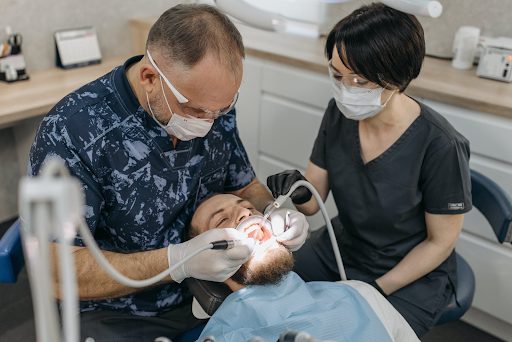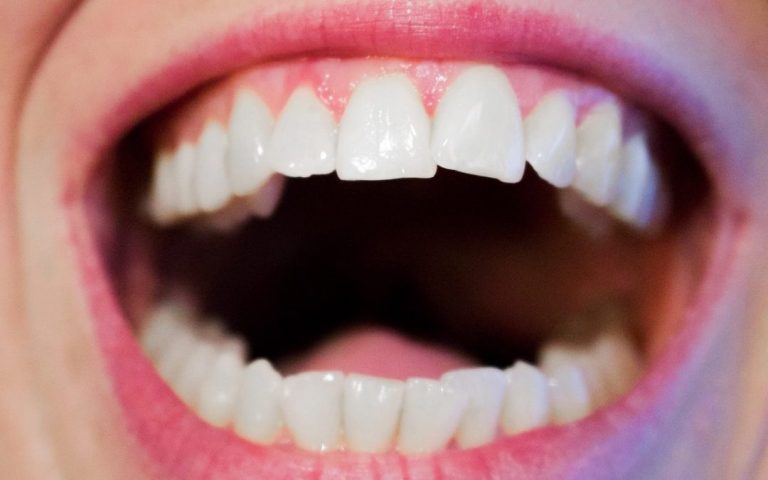Wisdom teeth removal is one of the most common surgical procedures carried out in the UK. Wisdom teeth are the third and final sets of molars that come through between the ages of 17 and 25. If properly aligned, they are considered valuable for the mouth. If they are misaligned or become infected, wisdom teeth removal is required.
These sets of molars are called wisdom only because they come through at a more mature age. As mentioned earlier, they usually erupt between the ages of 17 and 25. However, they can also erupt many years later.
Read on to learn more about wisdom teeth problems and signs wisdom teeth are coming in
Signs Wisdom Teeth are Coming Through
When these last sets of permanent teeth emerge in the mouth, they can cause a variety of discomforting and painful symptoms. They can either grow perfectly fine or can cause dental problems like overcrowding of the existing teeth and impaction.
If your jaw feels swollen or you are facing difficulty opening your mouth wide, the chances are that the wisdom teeth are coming through.
The other signs wisdom teeth are coming in include:
- Swelling of the gums
- Jaw pain
- Bleeding or tender gums
- Bad breath
- Swelling of the jaw
- Jaw pain
- Difficulty opening your mouth wide
- An unpleasant taste in the mouth
Wisdom Teeth Problems
Sometimes wisdom teeth get stuck below the surface of the gum, which is called the impaction of wisdom teeth. The wisdom teeth growing at an odd angle causes a lot of complications and painful symptoms, including:
- Tender or bleeding gums
- Red or swollen gums
- Jaw pain
- Swelling around the jaw
- Bad breath
- Bleeding gums
- Earaches or headaches
- Consistent sinuses issues
- Crooked teeth
- Cysts near wisdom teeth
The aforementioned symptoms are also the signs that the patient should opt for wisdom teeth removal.
The most common wisdom teeth problems include:
Damage caused to other teeth: When wisdom teeth don’t have enough room to grow, they push against the second molars, increasing the risk of infection and damage to the second molar. This pressure can also cause overcrowding in the mouth, which is the condition in which the teeth run out of their original estate. Overcrowing in the mouth causes difficulty in flossing between your teeth, difficulty in chewing food, frequent tongue biting, crooked teeth, partial or full teeth overlap, and minor to major speech difficulties.
Cysts: Impacted wisdom teeth are also linked with oral cysts. When wisdom teeth are developed in a sac within a jawbone, these sacs can get filled with fluid, causing minor to severe damage to the nerve, teeth, or jaw. Cysts are usually when the impacted wisdom tooth is not removed. The cyst is usually formed around the wisdom tooth and can even displace the tooth.
Decay: The impaction of the wisdom teeth can lead to decay and disruption of healthy teeth. Sometimes, they shift backward, resulting in difficulty while opening and closing the mouth. Partially impacted wisdom teeth are usually at a higher risk of tooth decay.
Gum disease: Gingivitis and other gum diseases are also linked to the impaction of the wisdom teeth. The difficulty brushing and flossing the impacted and misaligned wisdom teeth can cause pericoronitis around the tooth, which is the swelling and infection of the gum tissue.
Wisdom Teeth Removal – When Should You Get Your Wisdom Teeth Removed?
If the wisdom teeth are causing pain, swelling, bleeding, infection, overcrowding, and other painful symptoms, you should contact a private dentist in Leeds and get the wisdom teeth removed. If your wisdom tooth is impacted, which means they are stuck and can’t break through your gums, wisdom teeth removal is recommended.
If your wisdom teeth are healthy, fully erupted, positioned correctly, and able to be properly cleaned, you won’t need to have your wisdom teeth removed. Before removing your wisdom teeth, your dentist will give you a local anesthetic to numb the tooth and surrounding area and a sedative if you feel anxious about the extraction.
Patients can take up to 2 weeks to recover after a wisdom teeth removal surgery. During this time, the patient can expect some form of swelling around the mouth and cheek. The bleeding after the extraction usually stops within 4 hours of the procedure. However, the occasional bleeding can last up to 1 to 2 weeks.
Final Thoughts
Wisdom teeth, the last set of permanent molars, emerge between the ages of 17 and 25. If there’s enough space in your mouth, they can come through without causing any pain. However, in most cases, they cause severe pain and hypersensitivity.
If you are experiencing the aforementioned painful symptoms, you should get yourself examined by a dentist to ask whether or not you require wisdom teeth extraction.




